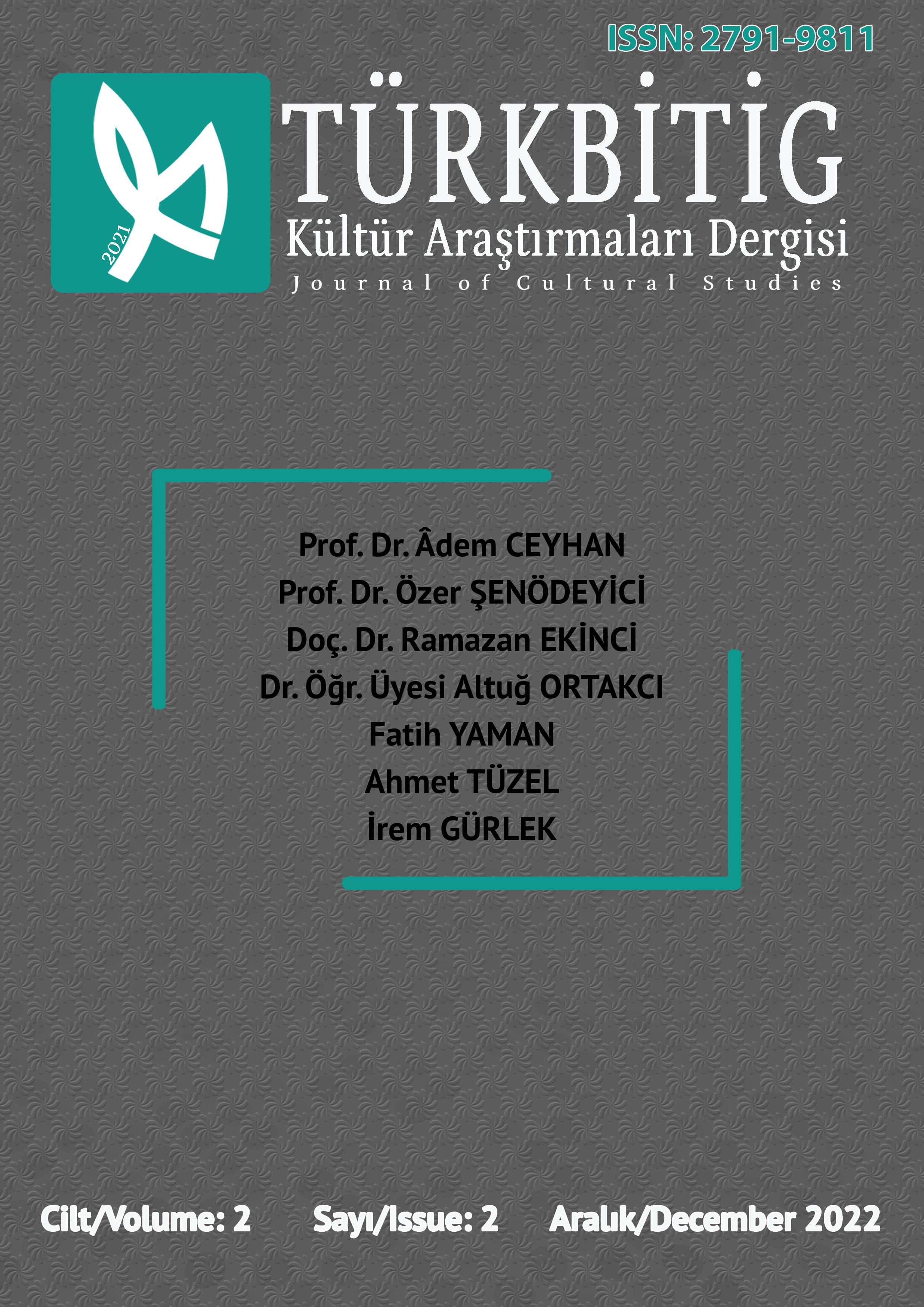Author :
Abstract
İnsanların geleceğe ve bilinmeyen duydukları merak, pek çok fal türünün ortaya çıkmasına neden olmuştur. Birbirinden farklı metotlar izlese de bu falların hepsinde insanların merakının yanı sıra çaresizliklerinin sömürüldüğü görülmektedir. Bu sömürüyü kolaylaştırmak için falcıların en çok başvurdukları yöntem ise dinî argümanlar olmuştur. Örneğin Kuran falı, İslam dininin yayıldığı tüm coğrafyalarda uygulanan bir fal olmuştur. Böylece, Kuran’dan fal bakma yöntemlerini, fal öncesinde yapılması gereken ibadetleri, okunması gereken duaları aktaran bazı metinlerde Arap harflerinin işaret ettiği okült anlamları konu alan çeşitli eserler meydana getirilmiştir. Bu eserlerden bazıları edebi ve estetik değer taşımakta, manzum ve mukaffa surette gaybdan haber vermektedir. Kuranıkerim tarafından yasaklanmış olmasına rağmen, bizzat Kuranıkerim’in fal malzemesi yapılması oldukça ilginç bir durumdur. Bu metinlere, herhangi bir gerçeği dile getirdikleri yanılgısına düşmeden, inanç ve kültür tarihi açısından yaklaşılması gerekmektedir. Bu çalışmada Kuran falları üzerine genel bir değerlendirme yapılacak, bir cönk içinde yer alan manzum bir Kuran falı Latin harflerine aktarılacaktır.
Keywords
Abstract
The curiosity of people about the future and the unknown has led to the emergence of many types of fortune telling. Although they follow different methods, it is seen that in all these fortune-tellings, people's curiosity as well as their helplessness are exploited. The most common method used by fortune-tellers to facilitate this exploitation was religious arguments. When it comes to the religion of Islam, it can be said that fortune-tellers make use of the Qur'an in order to convince people who belong to this religion. For example, the fortune-telling of the Qur'an has become a fortune-telling practice in all geographies where the religion of Islam has spread. Thus, various works on the occult meanings denoted by the Arabic letters in some texts that convey the methods of fortune-telling from the Qur'an, the prayers that must be done before the fortune-telling, and the prayers that must be recited have been created. Some of these works have literary and aesthetic value and inform about the unseen (gayb) in the form of poetry. It is quite interesting that the Qur'an itself is used as fortune-telling material, although it is prohibited by the Qur'an. These texts should be approached in terms of belief and cultural history, without making the mistake of expressing any truth. In this study, a general evaluation will be made on the fortunes of the Qur'an, and a verse Qur'an horoscope in a conk will be translated into Latin letters.
Keywords
- ÇALIŞKAN, Sami (2013). Kur’ân-ı Kerîm’e Göre Yıldızlar, Elâzığ: Fırat Üniversitesi Sosyal
- DURMAZ, Gülay-BAŞTÜRK, Şükrü (2019). “Bir Kuran Falı Örneği: Fâl-i Türkî-i Manzûm ve Dil Özellikleri”, Oğuz Türkçesi Araştırmaları Dergisi, 1, ss. 1-22.
- DUVARCI, Ayşe (1993). Türkiye’de Falcılık Geleneği ile Bu Konuda İki Eser, Ankara: Kültür Bakanlığı Yayınları.
- GÜR, Nagihan (2012). “Osmanlı Fal Geleneği Bağlamında Yıldıznâme, Falnâme ve Tâlinâme Metinleri”, Millî Folklor, 96, ss. 202-215.
- KARA, İsmail (1979). “Fal, Falnâme”, Türk Dili ve Edebiyatı Ansiklopedisi, 3, İstanbul: Dergâh Yayınları, ss. 153-155.
- KARTALCIK, Vedat (2000). Fâl-nâme: Giriş–İnceleme-Metin–Söz Dizini–Tıpkıbasım, Yayınlanmamış Yüksek Lisans Tezi, Isparta: Süleyman Demirel Üniversitesi Sosyal
- ORAZSAHEDOV, Abdylla (2017). “İslâm’ın Sancaktarı Büreyde bin Husayb el-Eslemî” Bülent Ecevit Üniversitesi İlahiyat Fakültesi Dergisi, 4/2, ss. 209-243.
- ORHUN, Murat (2009). “Hititlerde Karaciğer Falı, Kuş Uçuşu Falı ve Bunların Etrüsklerdeki Uzantısı”, Akademik Bakış, 3/5, ss. 231-250.
- SEZER, Sennur (1998). Osmanlı’da Fal ve Falnameler, İstanbul: Milliyet Yayınları.
- SÜMBÜLLÜ, Yusuf Ziya (2008). “İlm-i Tefeül ve Tefeül-nâme (Kur’ân Falı) Üzerine Bir Değerlendirme”, Uluslararası Sosyal Araştırmalar Dergisi, 1/2, ss. 383-391.
- ŞANLI, İsmet (2003). “XVI. Yüzyıl Divan Şairi Fedâyî ve Fâl-Nâme-i Kur’ân-ı ‘Azîm’i”, Uludağ Üniversitesi Fen-Edebiyat Fakültesi Sosyal Bilimler Dergisi, 5, ss. 161-178.
- ŞENÖDEYİCİ Özer; KOŞİK Halil Sercan (2016). Osmanlı’nın Gizemli İlimleri 1: Kuran Falları ve Uzun Firdevsî’ye Ait Bir Örnek, İstanbul: Kesit Yayınları.
- ŞENÖDEYİCİ, Özer; KOŞİK, Halil Sercan (2015). “En Muteber Kaynaktan Gaybı Öğrenmek: Bir Kuran Falı Manzumesi”, Littera Turca Journal Of Turkish Language and Literature, 1/1, ss. 71-96.
- YEŞİLBAĞ, Semih (2020). “Edebî Bir Tür Olarak Fâlnâme ve Mensur Bir Kur’ân Falı Örneği”, RumeliDE Dil ve Edebiyat Araştırmaları Dergisi, 7, ss. 367-369.
- YEŞİLYURT, Temel (2013). Çağdaş İnanç Problemleri, Ankara: Diyanet İşleri Başkanlığı Yayınları.
- YÜCEER, İsa (2001). “İnanç Problemlerinden (Halk İnançlarına) Yansımalar”, Günümüz İnanç Problemleri Sempozyumu 7-9 Eylül 2001 Bildiri Kitabı, Erzurum, ss. 127-161.





